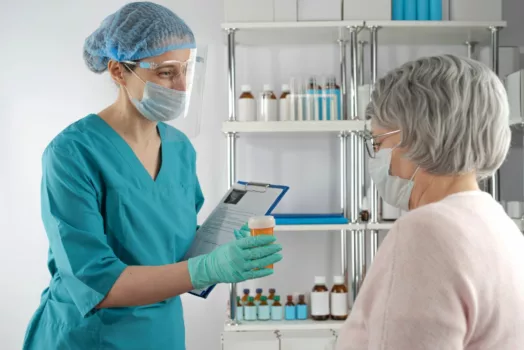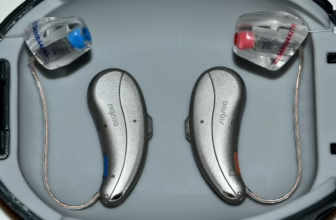For patients facing terminal diagnoses, the traditional drug development timeline can feel like an insurmountable barrier between them and potentially life-saving treatments. While the rigorous process of clinical trials and FDA approval helps ensure drug safety and efficacy, it can take years – time that many terminally ill patients simply don't have. Enter Expanded Access Programs (EAPs), also known as compassionate use programs, which offer a crucial bridge between experimental treatments and patients who have exhausted all other options.
Expanded Access Programs allow patients with serious or immediately life-threatening conditions to access investigational medical products outside of clinical trials. These programs represent a delicate balance between providing hope to desperate patients and maintaining the integrity of the clinical trial process that ensures new drugs are safe and effective for the broader population.
Below is a link for more info about Expanded Access:
https://www.earlyaccesscare.com/services/expanded-access
Dr. Sarah Chen, an oncologist at Memorial Sloan Kettering Cancer Center, has witnessed firsthand the impact of EAPs on her patients. “For someone who has tried every approved treatment without success, access to an experimental drug can mean everything,” she explains. “While we never promise miracles, these programs have given some of my patients precious additional months or even years with their loved ones.”
The path to accessing experimental treatments through EAPs is not simple, but it offers a structured approach for patients who qualify. Typically, patients must have a serious or immediately life-threatening condition, have exhausted all available treatment options, be ineligible for clinical trials, and have a physician who is willing to oversee the experimental treatment. The drug manufacturer must also be willing to provide the investigational product, and the FDA must approve the expanded access request.
John Martinez, a stage IV lung cancer patient who participated in an EAP in 2023, shares his perspective: “After standard chemotherapy stopped working, my oncologist told me about a promising new drug in development. Through the expanded access program, I was able to receive the treatment before it was broadly available. While I know it's not a cure, it's given me more time with my family, and I'm grateful for that opportunity.”
Critics of expanded access programs raise valid concerns about potential impacts on clinical trials and drug development. If too many patients receive experimental treatments outside of trials, it could become harder to complete the controlled studies necessary for FDA approval. Additionally, adverse events in expanded access cases could potentially jeopardize a promising drug's path to approval, even if those events occurred in very sick patients who had exhausted all other options.
However, proponents argue that EAPs serve a vital ethical purpose without significantly disrupting the drug development process. Dr. Robert Walsh, a bioethicist at the University of Michigan, notes, “These programs recognize that while we need rigorous clinical trials to develop new treatments, we also have an ethical obligation to help desperately ill patients who cannot wait for the standard approval process.”
Drug companies have also begun to develop more structured approaches to expanded access. Many now have clear policies and procedures for handling requests, and some have established lottery systems to ensure fair access when supply is limited. This systematization helps balance competing needs: providing access to desperate patients while maintaining the resources and focus necessary to complete clinical trials and bring new treatments to market.
The future of expanded access programs may be shaped by increasing calls for “right to try” laws and greater access to experimental treatments. While these laws have generated controversy, they highlight the ongoing tension between patient autonomy and the need for careful regulation of new drugs.
The COVID-19 pandemic brought renewed attention to expanded access programs, as they were used to provide experimental treatments to severely ill patients before formal approval. This experience has led to discussions about how to streamline and improve EAPs while maintaining necessary safeguards.
For families facing terminal illness, expanded access programs offer more than just potential treatment – they offer hope and agency during an incredibly challenging time. “When you're told you're out of options, it's devastating,” says Maria Thompson, whose husband participated in an EAP for an experimental brain cancer treatment. “Having the possibility of trying something new, even if it's not guaranteed to work, gives you back some sense of control and hope.”
Looking ahead, the challenge will be to continue refining these programs to serve patients while supporting the broader goals of medical research and drug development. This may include developing clearer criteria for access, improving coordination between healthcare providers and drug manufacturers, and finding ways to use data from expanded access cases to support drug development.
While expanded access programs cannot guarantee positive outcomes, they represent a compassionate approach to helping patients who have exhausted standard treatment options. For those facing terminal diagnoses, these programs can provide a vital lifeline and a chance to access cutting-edge treatments that might otherwise be years away from approval. As one participant put it, “Sometimes hope is the best medicine we have.”
Follow me down the rabbit hole!
I'm Alice and I live with a dizzying assortment of invisible disabilities, including ADHD and fibromyalgia. I write to raise awareness and end the stigma surrounding mental and chronic illnesses of all kinds.








